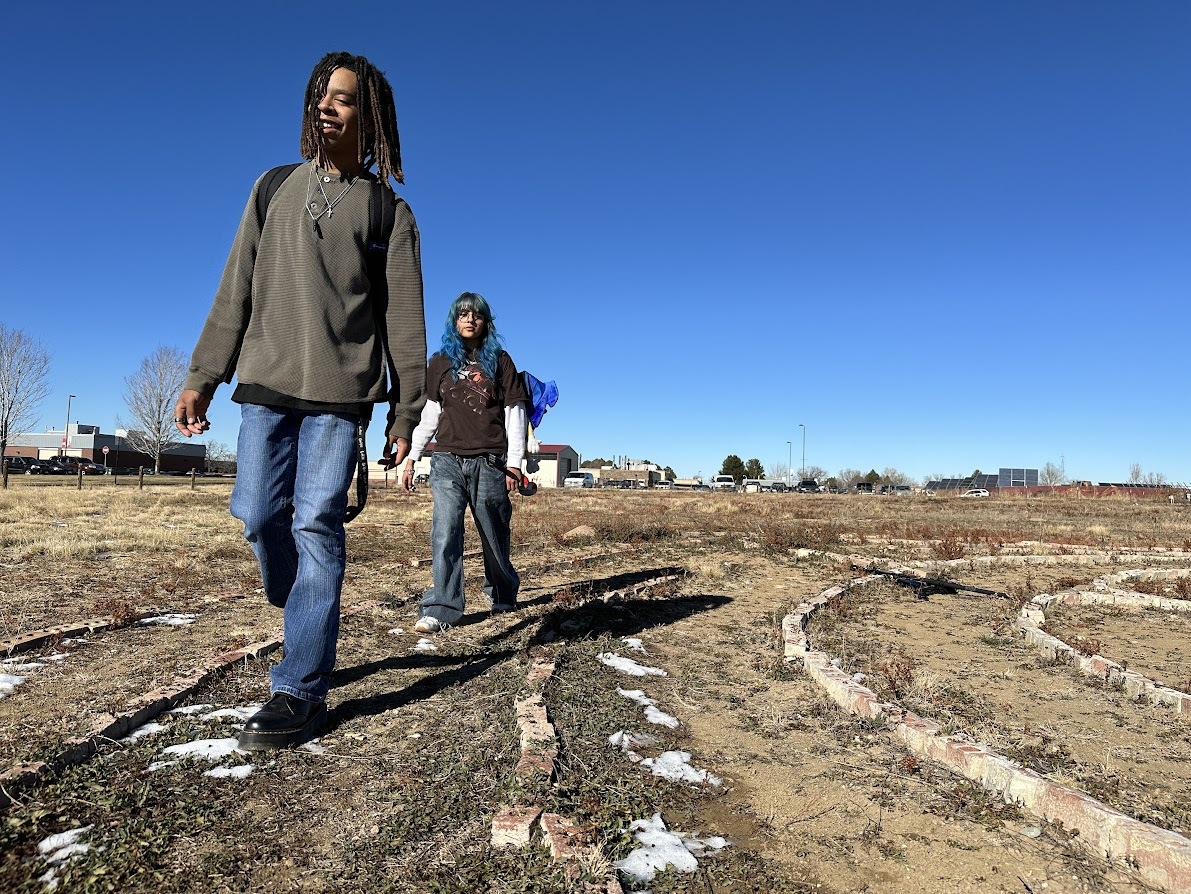
Zarely Sotelo, 16, remembers one day her friend telling her to hurry up because they were late for class.
“But Chelsea, I’m walking the labyrinth!” Sotelo exclaimed.
Her friend understood and let her finish. Walking the labyrinth, a series of concentric circles carved into the dirt ground behind William Smith High School was a way for Sotelo to de-stress and get ready for the rest of the day.
Walking the labyrinth is just one way a group of students at this small Aurora high school have learned to better cope with the stresses of their young lives. It’s part of an interdisciplinary school project called “How to Stress Like a Genius” and it involves everything from dissecting a sheep’s brain to walking a labyrinth. Students take a project-based approach to learning about how stress and other strong emotions trigger responses in the body. Students develop their own “playbooks” for the best ways to cope with those feelings.
This week, as part of the EL Education National Conference in Denver for expeditionary learning schools, Sotelo and other students will set up and demonstrate various stations to explain to teachers from across the country how the coping techniques they’ve learned have helped them. For example, Kevin Rankin, 17, will explain you start walking a labyrinth with a thought in your head, perhaps a worry.
“As you go through the walk, just really expand on that thought until you get to the middle and once you get to the middle acknowledge what you’ve learned,” he said. “Then on the way out, that’s when you relinquish the thought. If you don't, that's OK. Who's stopping you from going back in?”
Rankin feels grateful he’s had the opportunity and time to take a class where he can learn to understand himself better.
“It’s teaching me how to go through my life and still know that it’s OK, things can be hard but know that I can manage them.”
William Smith High School is a small district-run expeditionary learning school. That means students learn through experiential, project-based or hands-on learning. Students go on field trips, like studying wolf reintroduction in Yellowstone National Park, or take classes like scroll painting or studying “unusual” life forms on earth. One topic is taught across multiple subjects and students produce authentic work to demonstrate what they’ve learned.
'Stress Like a Genius Project' came about when a student produced a video asking her classmates about the most important issue to them
“Mental health was No. 1,” said Paul Grzybowski, a literacy teacher at the school. He said normalizing mental health and suicide prevention is critical.
“We have so much at stake for our future,” he said. “Talking about it in class and even making a PSA campaign to support the entire school, and letting them know that it's OK to not be OK. Hearing that from someone their own age I think has a big impact on our youth.”
Understanding the human brain and its role in modulating stress was first.
In science class, students dissected and examined sheep brains, which are similar to human brains. They learned about the brain’s amygdala and how mindfulness exercises or increasing physical exercise can affect its ability to manage stress, fear or anger. Another biology teacher had students examine the effects of exercise not just their heart rates, but on their mental outlook and ability to slow down.
“I realized how in-depth this class made me think of myself,” said Samantha Romero, 17. “I really looked at myself … we're stressing and we're kind of seeing what causes that stress and what we can do to cope with that stress.”
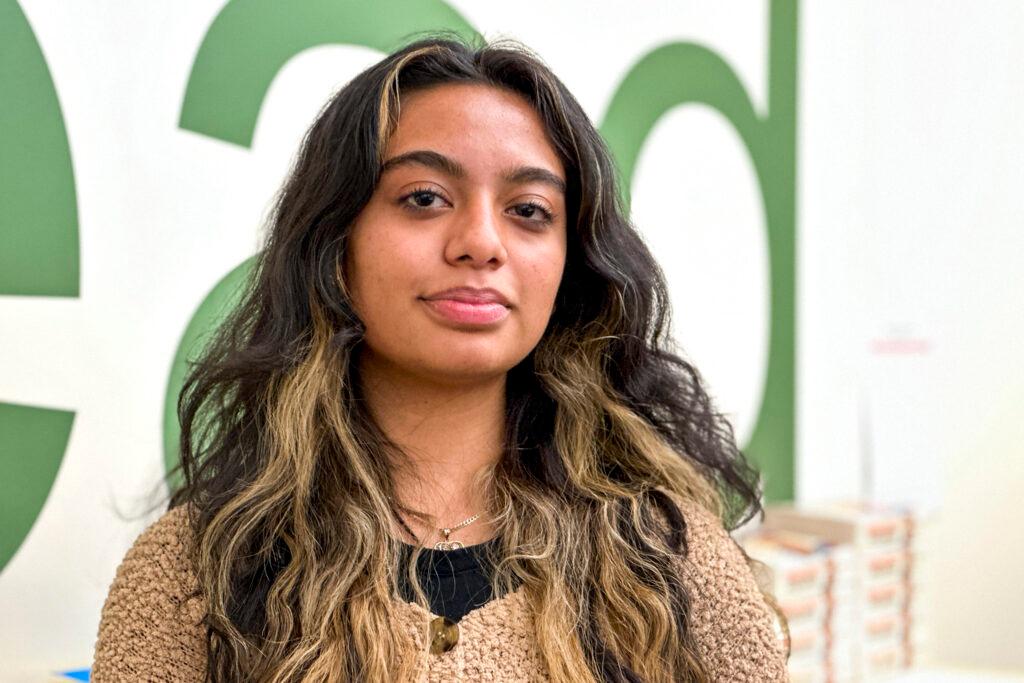
Romero realized how much she burns herself out on school work. One technique she likes is box breathing: breathe in four counts, hold four counts, breathe out four counts, hold four counts, kind of like the shape of a box.
Grzybowski has also taught students how to do body scans, where they become aware of the sensations around them.
“So, he'll start at our feet and he'll be like, ‘Do you feel your feet against the floor?’” explained Rankin. “And you'll acknowledge that and you'll start to feel sensations against your body that you didn't know were there before. So, it really helps you scan yourself and really bring yourself to know what you're feeling in those moments.”
What stresses out many teens is not understanding their strong emotions
Rankin, a junior, said he didn’t understand where emotions were coming from and why, like why he’ll suddenly feel sad.
“Growing up, I was very sensitive,” he said. “I used to cry a lot. Still do, but not as much as I used to. It's harder. And I think that has to do with people around me making it seem like it wasn't okay for me to feel my emotions. So, I've been very monotone a lot of the time.”
The class has taught him to learn to be OK with his emotions. He’s spreading the knowledge to others.
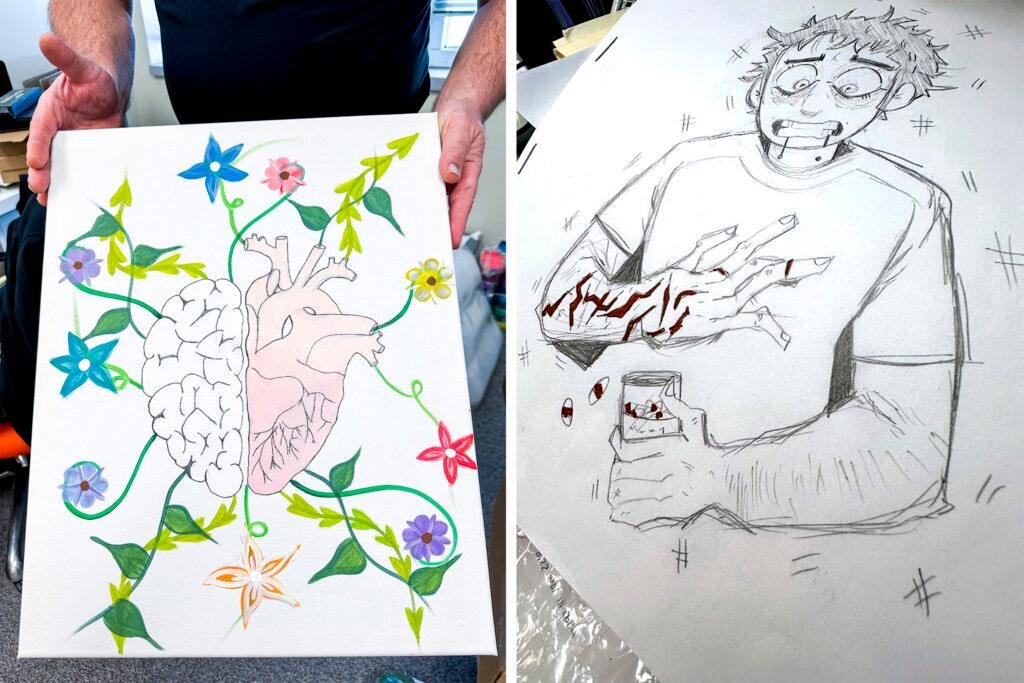
He said, like many families with teenagers, his family’s first instinct can be to yell at each other. But Rankin has learned to avoid those confrontations if he stops for a second and tries to see the other person’s perspective. He’s taught his family the techniques and he said they’re catching on, especially with his younger brother.
Students learn five core competencies: self-management, self-awareness, social awareness, responsible decision-making and relationship skills. Those skills help them develop a healthy sense of who they are, manage stress, understand the views of others, and work together to help others.
When she heard a lesson about impulse control, junior Zarely Sotelo realized she struggles with it. She said she gets distracted easily. She’ll find herself wandering off to the other side of the classroom to interrupt her friend. For those times when she’s speeded up and distracted, her friend Rankin gave her a suggestion.
“I think of the word ‘slow.’ It was actually a time, I was just hanging out with Kevin. He wrote the word S-L-O-W. I don't know why, but it just resonated with me.”
And Sotelo, like a lot of teenagers, feels these immense, sometimes scary emotions and doesn't know what to do with them. One day, she asked her teacher Grzybowski if he can control his thoughts and emotions. He said he could.
“I was like, interesting.”
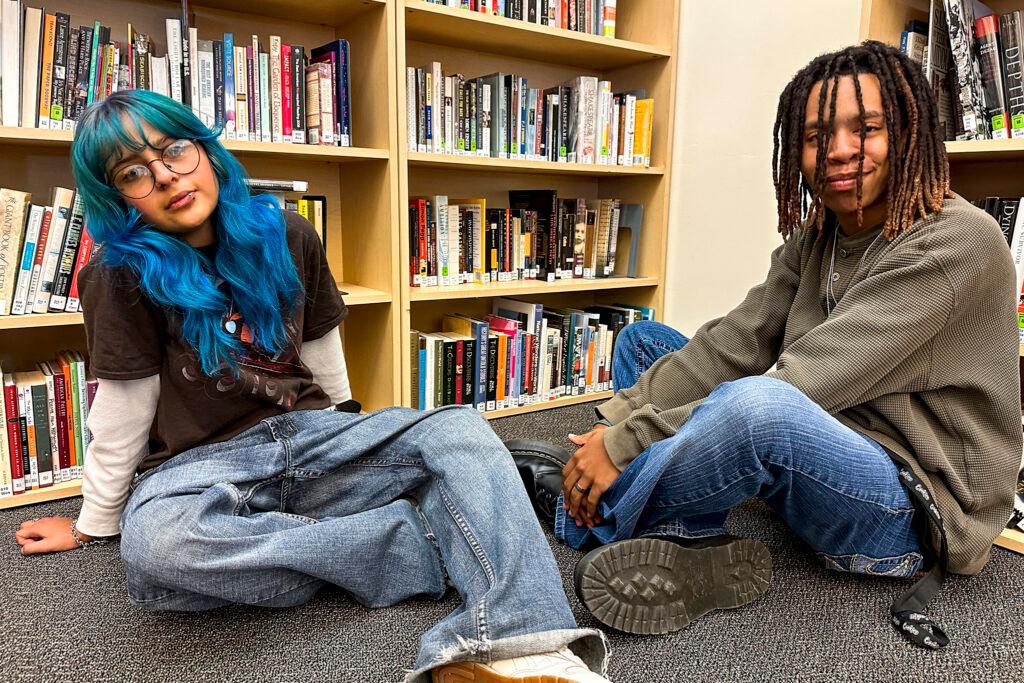
That’s because earlier in the day she was asking kids the same question.
“They're like, ‘No, I can't control my thoughts. I can't tell myself not to be scared, not to think that.'”
She talked to Grzybowski about that issue, and she learned that often it was a matter of how much you choose to allow that thought or emotion to dominate all others, to let it bother you – and the coping mechanisms to move on.
Sotelo went home that day.
“My sister's yelling at me. I don't know why, but she just is. I'm like, OK …”
She took a breath, didn’t react immediately and didn’t let it get to her.
“So that was really big. Now I use it every day. It's crazy how much I'm in control,” she said with wonder.
Playbooks for a healthy life
Once the kids have an understanding of what works to calm themselves, in literacy class, students are assigned to create a playbook for their own wellness.
What are their coping mechanisms? It could be breathing exercises, schedules, journaling, or going to the gym. Romero said she gets super stressed staying on top of her precalculus class. Now she takes more breaks and that’s helped.
“So just learning about the breathing exercises and actually doing them, it's definitely helped me a lot when I do any kind of work. Not even just schoolwork, it helps me throughout my whole life.”
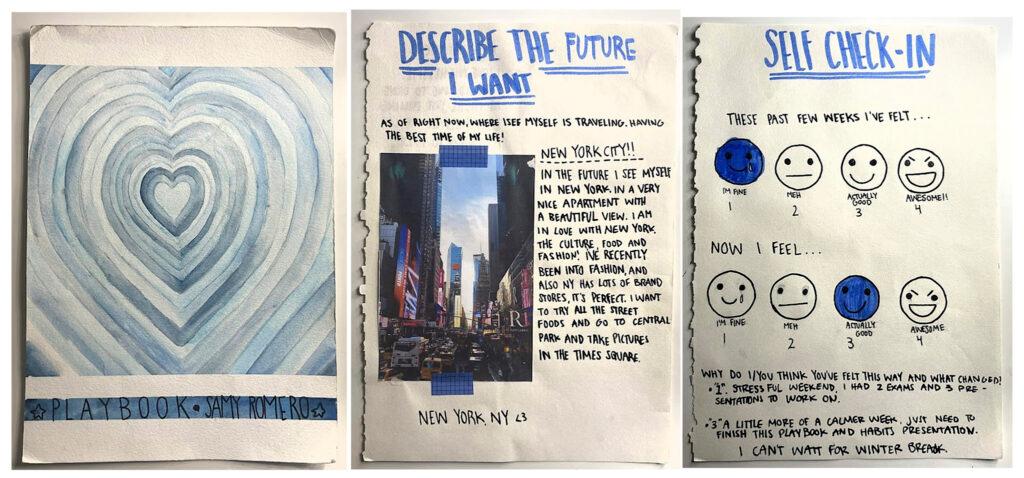
Some kids make digital playbooks. Romero wrote her own playbook in physical form, including her stressors, coping mechanisms that work for her, her dreams and hopes because she likes to be creative.
Rankin writes letters and poetry and makes music that he posts on Apple Music and Spotify.
Students have a chance to educate teachers about what students need
A big part of expeditionary or project-based learning is sharing what you’ve learned with other groups of people.
At the national expeditionary learning conference in Denver, Rankin, Romero, Sotelo and other students will set up stations for teachers — a labyrinth walk, yoga, breathing exercises, body scans and other sensory stations like aromatherapy. They’ll explain what they’ve learned about the brain-body connection and how coping mechanisms have helped them.
Grzybowski said through this, the students will influence “a lot of souls.”
“When they're leading other teachers from all across the nation this week, those teachers are taking it back home, and those students are going to be reached out to,” Grzybowski said. “They're going to have the experience of discovering, ‘This is okay, everything I'm feeling is temporary, and I can actually do something about it and I can heal from it.’”
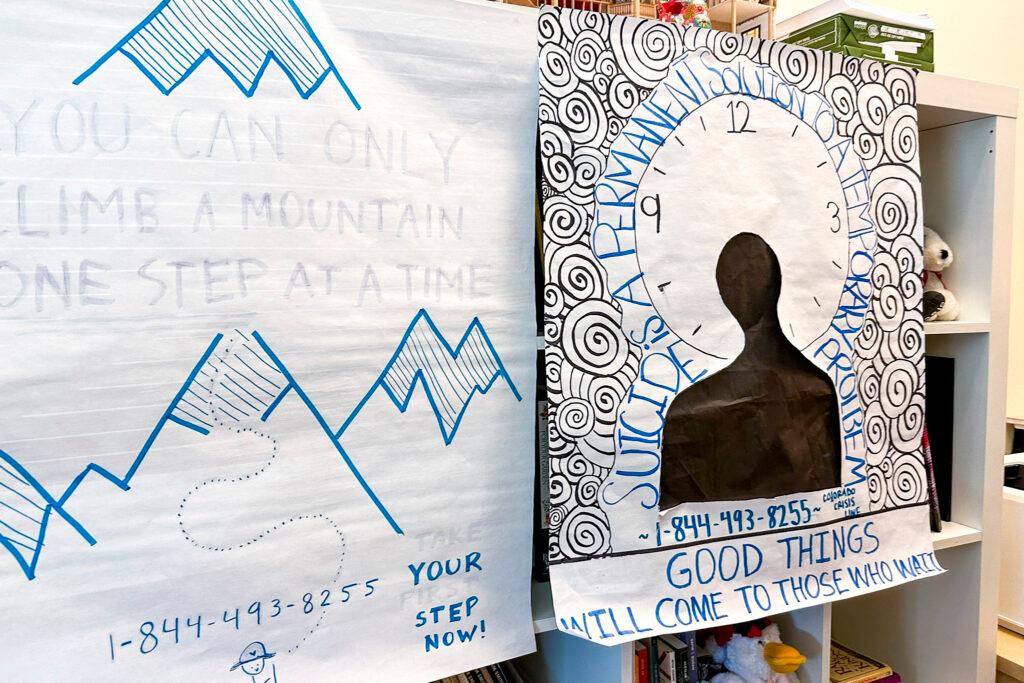
And if their feelings aren’t temporary or are something they can’t manage on their own, teachers can let their students know there’s other help available.
Rankin said what he loved about the class is he could take what he learned and apply it anywhere, to anyone.
“It's never too late to work on your wellness and anybody can do it and it can be applied to any aspect in your life,” he said.









